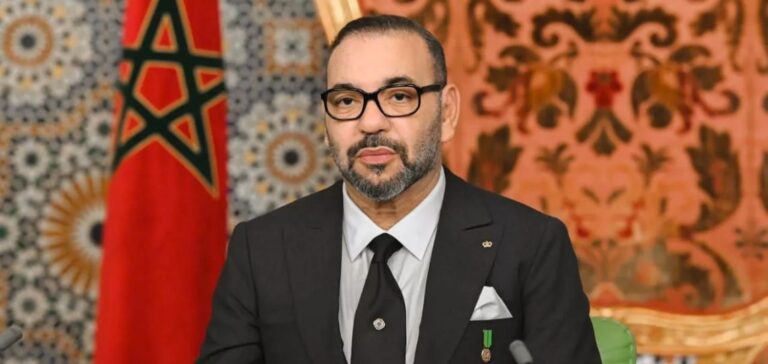Morocco’s King Mohammed VI has praised the Nigeria-Morocco gas pipeline project, which is to supply West Africa and Europe, against a backdrop of fierce rivalry with neighbouring Algeria, Africa’s biggest exporter of natural gas.
A memorandum of understanding on a gas pipeline project linking Nigeria to Morocco was signed in mid-September in Rabat with the Economic Community of West African States (ECOWAS). Mauritania and Senegal are also participating in this project.
“Intended for present and future generations, the project works for peace, economic integration of the African continent and its common development,” Mohammed VI pleaded in a speech on Western Sahara.
“Our hope is that it will be a strategic project that will benefit the entire West African region, whose population exceeds 440 million people,” he added.
“Given the continental dimension of the Nigeria-Morocco Gas Pipeline, we also see it as a structuring project that promises to link Africa and Europe,” said the Cherifian monarch.
The Nigeria-Morocco Gas Pipeline (NMGP) project, for which no timetable has been established, is taking place in a geopolitical context marked by strong international demand for gas and oil and soaring prices after Russia’s invasion of Ukraine.
Several countries, particularly in Europe, are seeking to reduce their dependence on Russia.
The Nigeria-Morocco project is 6,000 km long and will cross 13 African countries along the Atlantic coast and supply the landlocked states of Niger, Burkina Faso and Mali.
It is expected to bring more than 5,000 billion cubic meters of natural gas to Morocco.
From there, it will be directly connected to the Maghreb Europe Pipeline (GME) and the European gas network.
The signing of the NMGP memorandum, announced in late 2016, comes against the backdrop of heightened regional rivalry between Morocco and Algeria, Africa’s largest exporter of natural gas and the world’s 7th largest.
The crisis between the two Maghreb brothers culminated in the rupture of their diplomatic relations in August 2021 at the initiative of Algiers.
Following this rupture, Algeria deprived Rabat of its gas by closing in October the Maghreb-Europe gas pipeline (GME) carrying Algerian gas to Spain and transiting through Morocco.
Since then, Rabat has sought to diversify its sources. At the end of July, the Algerian, Nigerian and Nigerian energy ministers signed a memorandum of understanding to materialize a competing Trans-Saharan Gas Pipeline (TSGP) mega-project, more than 4,000 km long, to bring Nigerian gas to Europe via Niger and Algeria.
No date has been given for the completion of the Trans-Saharan.
In his radio and television speech on the occasion of the 47th anniversary of the “Green March” to the Western Sahara, the King of Morocco said that “the process of consolidating the Moroccan identity of the Sahara has entered a crucial phase.
In August, the monarch had urged Morocco’s partner countries, primarily France, to take an “unequivocal” position in favor of the “Moroccanness” of the disputed territory.
In November 1975, at the call of King Hassan II, 350,000 Moroccans crossed the border into Western Sahara, then a Spanish colony, on foot in the name of “belonging” to the kingdom.
The former Spanish colony, which has been disputed for decades by Morocco and the Sahrawi independence fighters of the Polisario Front, is considered a “non-self-governing territory” by the United Nations.
Morocco controls 80% and proposes autonomy under its sovereignty, while the Polisario is calling for a referendum on self-determination.





















